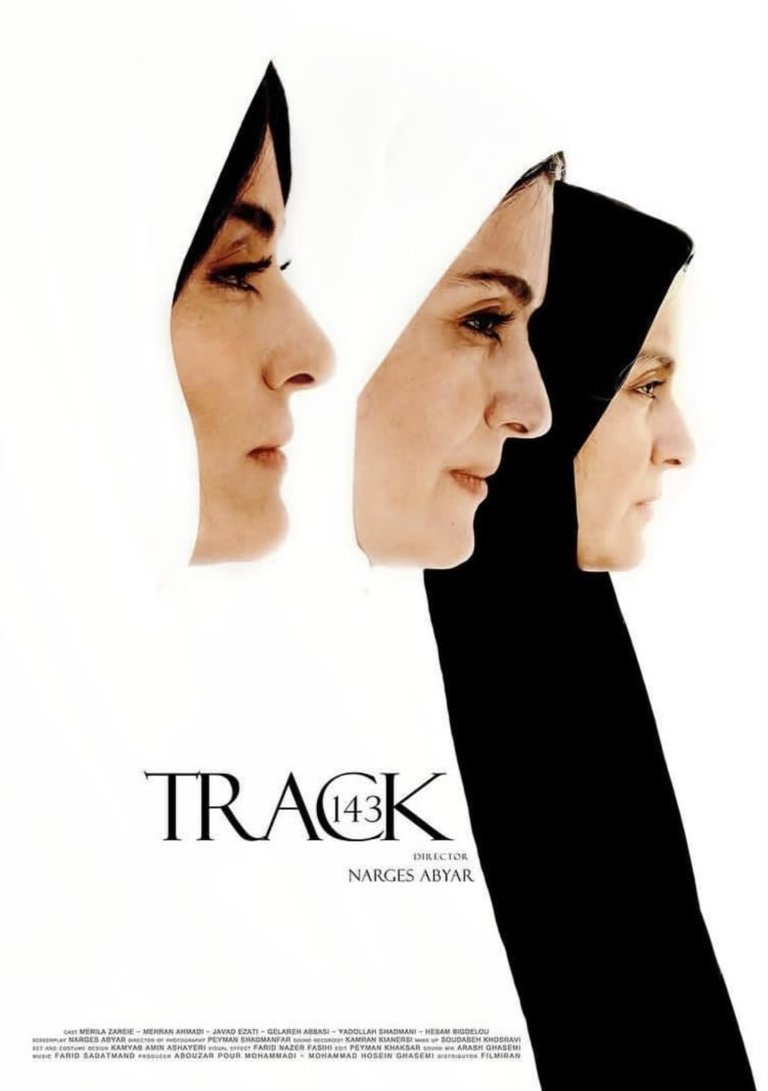NOOB FILM REVIEW - TRACK 143 directed by Narges Abyar. IRANIAN FILM FESTIVAL 2024

SYNOPSIS (from MUBI)
A highly emotive story about the Iran-Iraq war that focuses on the torment of a woman, whose son volunteers to fight Iraqi forces during the invasion.
REVIEW
There is that famous saying, "No mother should bury their child" and the motherly gut feeling is seldom wrong.
The mother's emotion, I think, is immeasurable and indescribable by words yet cinema somehow, has a way of doing so. In this film, it is shown by the howling of the dog and the accidental breaking of a mirror.
The minimal play of gestalt psychology is enough to relay the feelings of the mother character Alfat, who is waiting for the return of his son Yonos from the war. This starkly contrasts the happy times raising him as a child with her other son and daughter. This play of binary opposition carries through to the very end to show the difference between life and death despite being done in a similar scene setup.
The attachment of Alfat to a small radio, waiting for any news of Yonos reminded me of Tom Hanks's character in the film Cast Away (2001) and his attachment to a ball called Wilson. Alfat's connection to the radio is more of her clinging to the hope of his son returning.
A figure and ground relationship is used nicely in scenes when Alfat walks to the factory and sees the relative scale of the industrial machine to the strong will of a mother looking for his son.
In many real-life instances, we have heard stories of the spirit of a murder victim coming in dreams and giving clues to the living. The lady director uses the same element here. The dead do speak. The earlier scene where Yonos played with the wooden stairs foreshadows the scene Alfat sees in her dream.
The inclusion of real clips from the war a-la Tsarkovsky's Ivan's Childhood (1962) and Wong Kar Wai's In The Mood For Love (2000) links the story to a real-life event thus giving it more weight and context.
The 'interview' style in getting details about the accounts of what Alfat has gone through adds the 'Rashomon effect' to the story, meaning the story you hear is from their perspective and not necessarily the truth. Especially the ending where Alfat is alone in the room. On whose account was the scene reconstructed?
Finally, it is about war where Franklin D. Roosevelt said, 'War is young men dying and old men talking'. Neville Chamberlain said
"In war, whichever side may call itself the victor, there are no winners, but all are losers."
Hard times create strong men. Strong men create good times. Good times create weak men. Weak men create hard times. The cycle continues. And mothers are the ones paying the most. They gave birth to life and in many cases they see it being buried. Hence the first saying I shared above. Personally, I have seen my grandmother bury my father, and my mother bury my brother. That is why God and the Prophet Mohammed pbuh put mothers at the highest degree among others.
Alfat is a carpet weaver. There are close-ups of her with threads in the foreground concealing her face, talking about her torment. But she keeps on sewing. It could be a metaphor for living because, in the end, she's done with the tapestry by cutting away the extra thread, which might have meant that her life ends after losing Yonos. The 'tapestry' of life she has woven all the years is a closed book. Oh, the poetry.
Watch this film and you will know it doesn't take high-budget special effects to tell a good story from the barren desert and draw you to tears. No. Not Dune 2